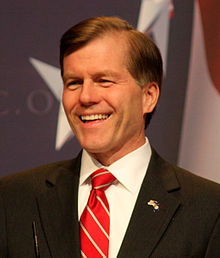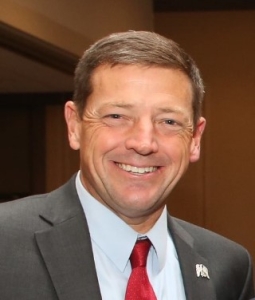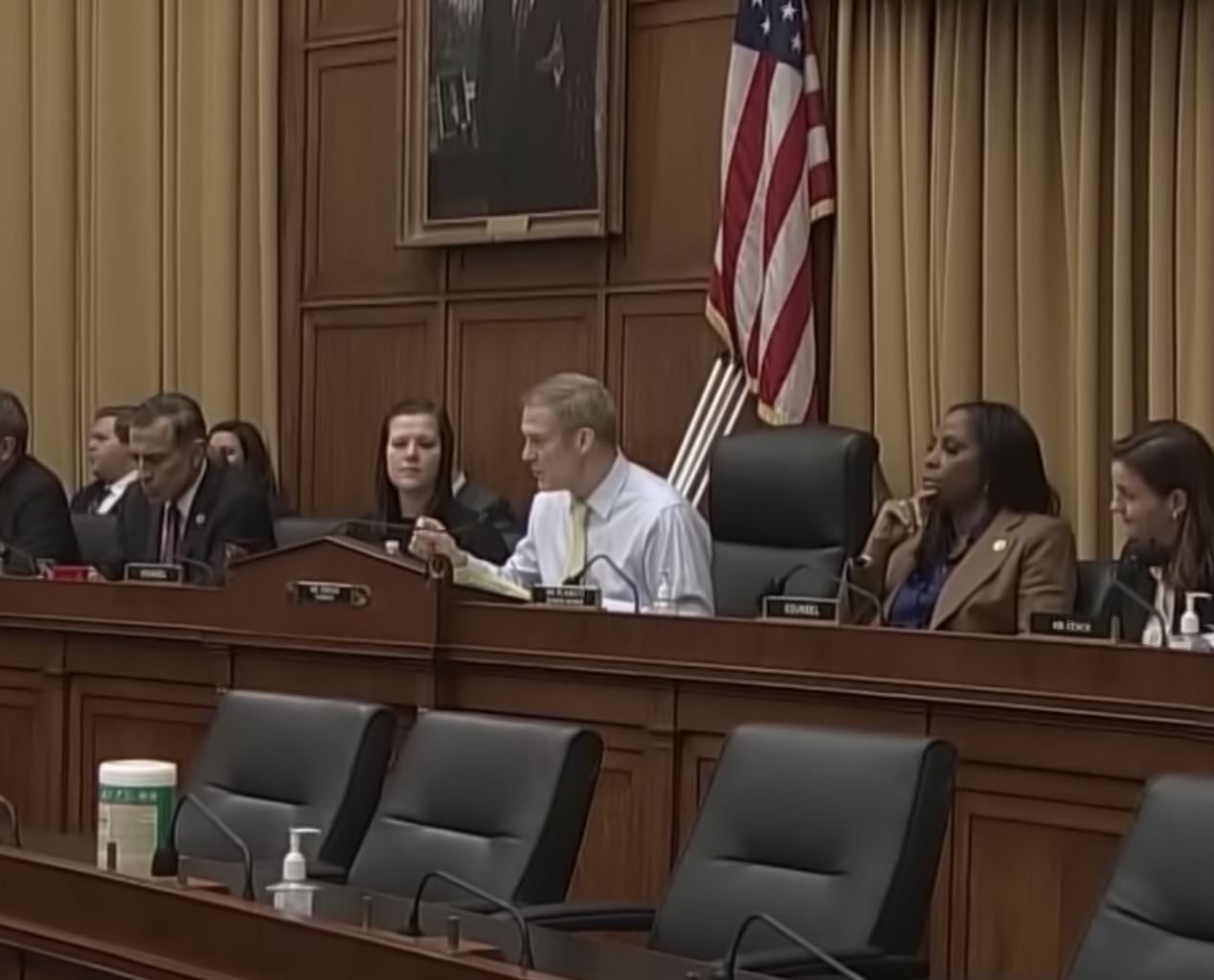Ross Parker was chief of the criminal division in the U.S. Attorney’s Office in Detroit for 8 years and worked as an AUSA for 28 in that office.

By Ross Parker
ticklethewire.com
The Supremes spent a very busy June and completed opinions on six difficult criminal cases, as well as three important civil cases and several others totaling 24 opinions as of June 27th.
That constitutes more than a quarter of the opinions for the entire year. The Court did, of course, have other business, several hundred certiorari petitions to review for next term’s docket, in-chambers opinions (applications to stay proceedings etc.), orders, and a few per curiam opinions deemed not to be worthy of full, authored opinion. The Justices have, for the most part, cleared the deck so that they can visit the grandchildren.
The Court rounded off the term on criminal cases by vacating the conviction of former Virginia Governor Bob McDonnell in a convincing unanimous opinion that not only restored his career hopes but also those of hundreds of legislators who feared the government’s interpretation of Hobbs Act bribery would make politics as usual a dicey business.
The Court narrowed the definition of “official acts” and “pending question or matter” such that the standard assistance of constituents provided by politicians could not result in a career-ending indictment. The Court did not go so far as to completely end McDonnell’s worries. It remanded the case to the Court of Appeals to review his claim that the evidence was insufficient, thus requiring dismissal of the charges. Even if he overcomes that hurdle or the Justice Department decides not to re-try the case, the question is whether future voters will forgive the First Couple’s receipt of $175,000 in shopping sprees and luxury vacations from someone who got essentially zero for his generosity.
As expected, the Court also vacated the judgment in Williams v. Pennsylvania, a capital case in which the Chief Justice of the Pennsylvania Supreme Court refused to recuse himself from ruling on a habeas petitioner’s appeal. What makes this action remarkable is that the Chief Justice, in his position as district attorney, had been involved in the criminal case by authorizing the decision to seek the death penalty and in supervising the case generally as head of the office. The vote, however, was closer than expected, 5-3, in reviewing this egregious behavior by former Chief Justice Castille. The dissent’s distinction was that the appeal involved a habeas decision, not the criminal phase of the case and occurred after Castille had left the prosecutor’s off ice. The state’s argument did not, however, pass the smell test, whatever artificial distinctions could be drawn.
In contrast, the Court ruled unanimously, 8-0, to reverse the 9th Circuit’s dismissal of the conviction in United States v. Bryant. The case held that tribal court domestic assault convictions could be valid predicates in a federal habitual offender prosecution, even though the prior convictions were without counsel. This was not a 6th Amendment violation since the right to counsel does not apply in this misdemeanor context in tribal courts. A victory for serially battered Native American women.
It was a tough month for Puerto Rico. Another prediction whiff by this column occurred in Puerto Rico v. Sanchez Valle. Apparently a vestige of Yankee imperialism lives on since the majority found that Congress, not the Puerto Rican people, was the historical source of the territory’s authority to enforce criminal laws. This meant that Puerto Rico is not sovereign in the same way that Indian tribes or the states are. Therefore the illegal firearms prosecution by local prosecutors was barred under Double Jeopardy after the Justice Department did a quickie prosecution for the same offense while the Puerto Rican case was awaiting trial.
For my money, Justice Breyer’s dissent had it right that all three branches of the federal government had returned that authority to the people of Puerto Rico when a self-governing Constitution was authorized. This broke any chain of authority going back to Congress. Yet another reason for statehood.
Then the Court piled on a week later when it struck down a Puerto Rican civil law as unconstitutional under the federal bankruptcy law. The case disallowed the attempt by Puerto Rican public utilities to restructure a $20 billion debt over the objections of creditors. Without a way to reduce its enormous debt, the case threatens the government’s ability to provide transportation and clean water to the public. Unlike say Detroit, Puerto Rico had been excluded from the Bankruptcy Code by Congress in 1984. Look for a renewed bail out plea by Puerto Rico to Congress.
In Taylor v. United States the Court rejected the defendant’s clever defense to a Hobbs robbery charge that he only intended to rob those who dealt in locally grown marijuana, and thus had no effect on interstate commerce. Not much left of this element in the context of drug dealing victims since all drug dealing affects the economy.
Without Justice Scalia as a partner in dissents, Justice Thomas must feel lonely on that side of the opinions. Justice John Marshall Harlan was the first called the Great Dissenter for his opposition in the 19th Century to the Court’s abominable opinions denying equal protection to Black Americans. Since then others have been given the title as an expression of respect—Oliver Wendell Holmes in the 1st Amendment freedom of speech context, Hugo Black and William O. Douglas in the 60s, and John Paul Stevens for his unique way of viewing the law in contemporary society. But Justice Thomas will never join their ranks. The Great Contrarian perhaps.
The Court in Utah v. Streiff held 5-3 that the attenuation doctrine could limit the exclusionary rule’s application in the context of a police officer who made an unlawful stop but then got lucky when he discovered that there was an outstanding arrest warrant for the detainee. The case made sense since the officer acted in good faith and did nothing to contrive the basis for the stop. As Napoleon said before Waterloo, it’s better to be lucky than good.
Another significant 4th Amendment decision was Birchfield v. North Dakota/Bernard v. Minnesota, in which the Court reviewed state statutes which made it a crime for detained drivers to refuse to submit to a sobriety test. Both breathalyzer and blood tests are considered searches incident to arrest, but is a warrant required? The Court distinguished between the two, finding that the former does not implicate significant 4th Amendment privacy interests but the latter does. So, unless there are exigent circumstances, a warrant is required to obtain a blood sample.
Finally the Court disappointed 2nd Amendment firearms advocates in holding in Voisine v. United States, by a 6-2 vote, that a conviction of domestic violence misdemeanor, even with only a showing of recklessness, could satisfy the federal statute’s prohibition of possession of a firearm.
For those schadenfreudian readers who kept track of the column’s predictions for the term, it is 17 out of 22, about 80%, great for a hockey forward on shoot outs, bad for a goalie.
Not that the summer will be a complete blow-off for the Justices. They, with the help of their law clerks, continue to look over about 100 new petitions for review received every week, along with motions, preparing for fall arguments, etc.
Actually, the Justices travel quite a bit throughout the year, frequently on the dime of outside groups. These trips totaled 365 for all nine of the Justices last year, ranging from about five a year by Chief Justice Roberts to around 25 by Justice Scalia. The trips often involve speeches which, no doubt, help educate the public about the life and function of the Court.
One interesting development this last month was the GAO’s report which gently supported the idea of live video of oral arguments, an issue advocated for some time. Two of the Circuit Courts, as well as dozens of state courts, already have stepped into the 21st Century with this project. The Court, however, is cautious about such changes, and column writers on oral arguments are unlikely to be made redundant in the near future.
This project has renewed my respect for the rigorous job the Justices have as the Supreme law of the land. Not the occupation for slackers or the faint of heart.




